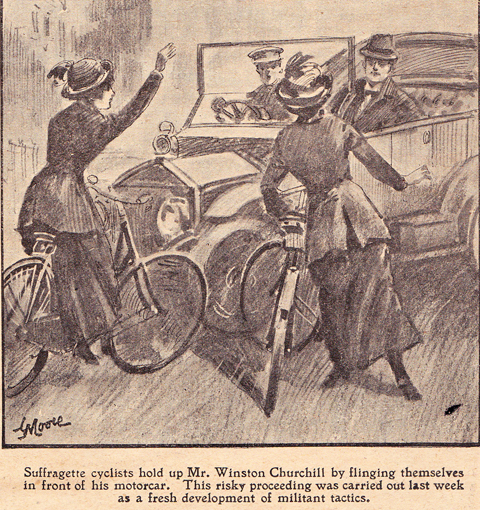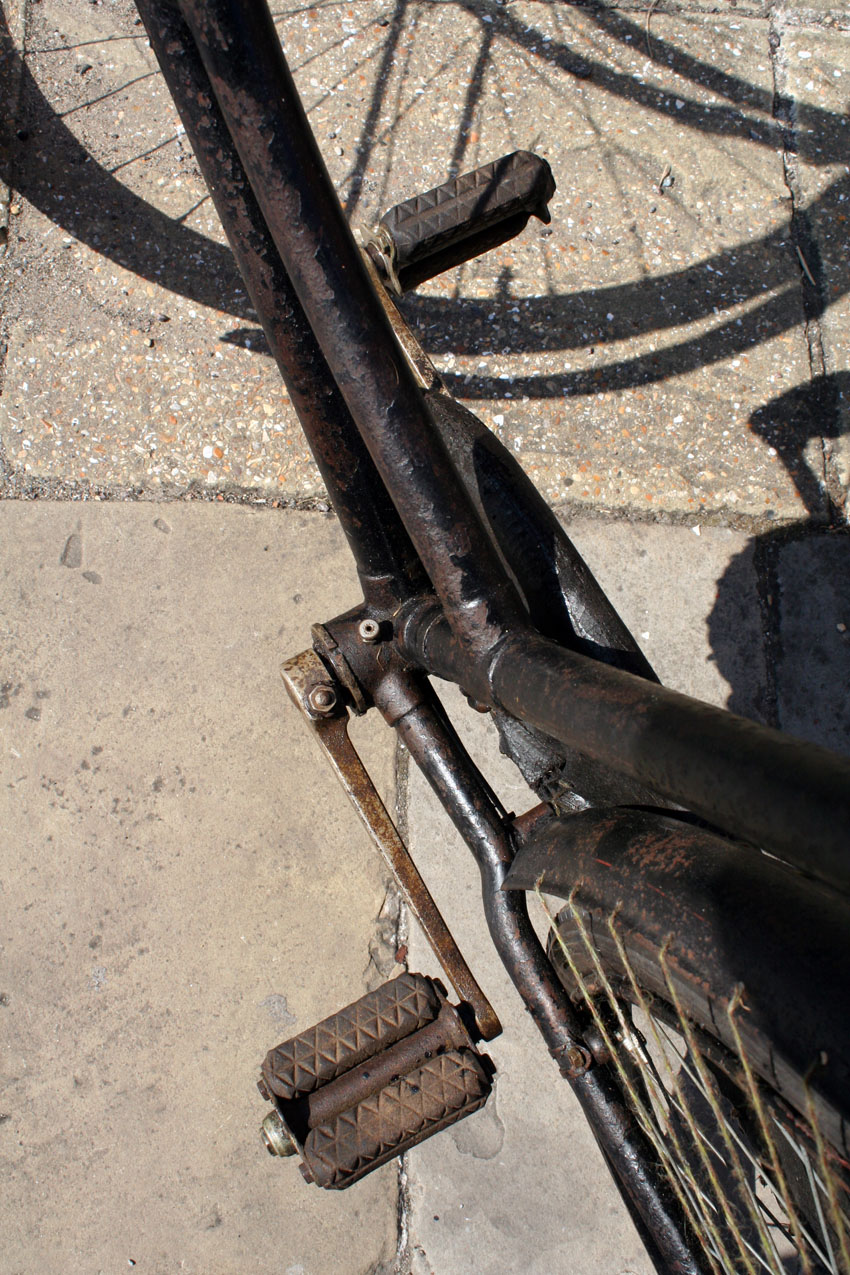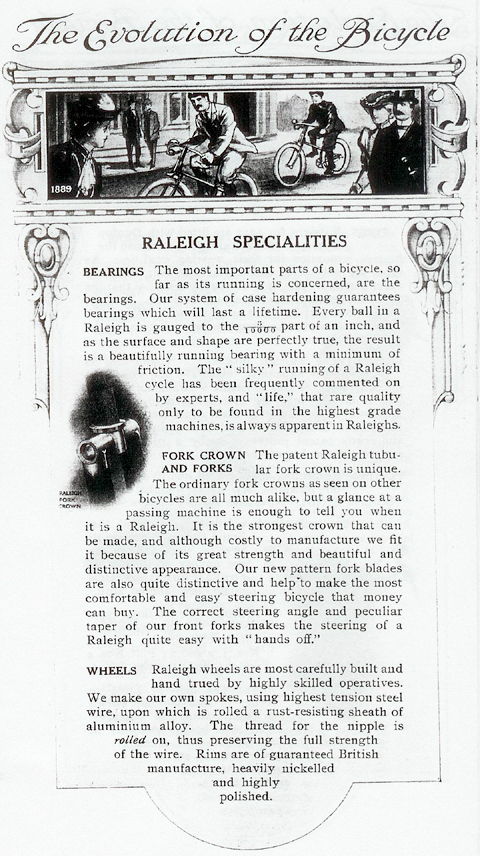
FOR SPEED, EASE & GRACE

The annual output of these two models alone (the Lady’s and Gent’s models) exceeds our total output of twelve years ago. Costly automatic machinery, splendid organization, rapid production, and standardization have enabled us to produce a bicycle, better in every respect than those twice its price at the above-named period, within the reach of the large army of purchasers of moderate means. These bicycles are good, serviceable models for either pleasure or business. They carry our everlasting guarantee, and have all the handsome appearance and splendid wearing qualities always associated with the All-Steel Raleigh.
– 1911 Raleigh catalogue
Over a century later, we generally take bicycles for granted. But a hundred years ago the bicycle represented more than just a means of getting from A to B, particularly for women. It made available for the first time a relatively inexpensive form of independent transport.
Most bicycles 100 years ago were heavyweight machines, and transportation had previously been a male preserve. After centuries of second-class status, women crashed into the twentieth century with new verve. Women cyclists were among the first activists to promote ‘rational dress’ that did not impede movement.
Victorian feminists had battled to become doctors, attend university, and gain basic property rights, although they were still far from winning the vote. Women increasingly enjoyed the independence that a bicycle represented, and this new era of personal transportation was the biggest single factor to inspire the suffragette movement.


1910 Raleigh Ladies ‘Popular No 27’ Bicycle
with Leather Chaincase
24″ Frame
28″ Wheels



The Lucas Revolving Dome Bell is an attractive feature. It is also interesting to see that it was originally fitted with a pre-1908 style of front mudguard, ie without the forward extension. No doubt the company still had the older style mudguards in stock after the ‘modern’ one replaced it in 1908, and was still using them up several years later.



LEATHER CHAINCASE
The most intriguing aspect of this Raleigh Popular is the leather chain-case, a purchase option at the time.
Considering chain-cases generally receive quite a battering during their lifetime, and many metal ones are replaced or removed, it’s remarkable that this delicate leather one still exists 100 years later.

During this bicycle’s restoration, the chain-case has been removed, cleaned and treated. New windows have been stitched into it. It’s ready for its next 100 years.

I’m unaware of any previous study of 100-year-old leather bicycle chain-cases. So I hope this might inspire some future interest in the subject.


Press Club, Birmingham, July 5th, 1911 – I have had my machine for 4 1/2 years and it shows no sign of deterioration. Beyond ordinary wear and tear incidental to all, it has needed no repair. Not only does the machine outwardly look well, but it runs as silently as ever. I have cycled all my life, but a sounder, safer, or swifter cycle I could not desire. W.J.G. Redpath

























LEATHERIES SADDLE

The Leatheries Ltd, of Sampson Road North, Sparkbrook, Birmingham, was one of many saddle makers of the period. They were taken over by Brooks Saddles Ltd in the thirties.

BEFORE RESTORATION

This beautiful Raleigh was in a sorry state when I bought it from Nick Clayton in 2008. Its restoration was carried out by my dear friend Tony in Gosport, and is a credit to his patience, perseverance and dedication to vintage bicycles. We preserve original cosmetics, and only restore a bike mechanically. This machine now has good brakes, greased bearings, rustproofed wheels, is fully oiled. And it rides very well.

As you can see from the chart, it’s 1909-1910.


Photo locations: Lewes and Alfriston, Sussex.





































